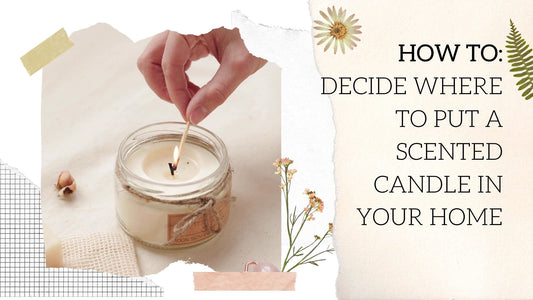
Self-Care Tips and Best Practices
Self-Care Tips and Best Practices
Why not join our 30-day self-care challenge Ebook?
Health & Happiness, Peace of Mind with simple routines that will keep you mentally and physically healthy throughout your life. >>> Join here <<<
Self-Care Tips and Best Practices
Caring for yourself and your mental well-being are two important things that have been glossed over until recent decades. Being kind to oneself is just as important—if not more—than being kind to others.
Self-care is more than simply treating yourself to a weekend vacation or splurging on high-quality skincare products. It can help you feel less anxious and be more mindful of your emotions and mood.
click the arrows to expand
A Bit of Cleaning
If you have been dealing with stress, anxiety, or symptoms of depression, you may have put off cleaning around your home. And that's okay. But sometimes, a messy and disorganized environment will cause you more stress, whether you recognize the source or not. Or, you may feel fine among the clutter but feel like you’ve lost control in your life.
Cleaning may not be something you feel like doing when you are going through low or negative moods, but it can help you feel like you’ve regained some control. Cleaning can feel daunting, but it is one of those chores that doesn't require much thought. You can start small, picking up trash or washing the dishes, and go on to more involved tasks as you feel more motivated.
Getting up and moving and finishing a task—no matter how small—can help improve your mood in several ways. You will feel productive, in control, and good about having a clean bed or a clean sink and dishes. A clean space can be one of those little joys in life that we sometimes forget about during tough times.
Exercise
There are many documented mental health benefits to regular exercise. Exercise can be beneficial not only in neurotypical people but in those with mental disorders such as anxiety or depression. Exercise is proven to reduce anxiety, depression, and negative moods and can improve self-esteem and cognitive function. Exercise can also reduce social withdrawal.
The physical benefits of exercise can also help alleviate negative feelings or low moods. Exercise can:
• Improve sleep
• Increase energy
• Decrease stress
• Increase mental alertness
Walking is a relaxing and invigorating form of exercise that not only gets you moving but gets you outside, where you can enjoy the world around you. Walking for half an hour or taking several shorter walks throughout the day can have numerous health benefits if done regularly.
Yoga is another calming type of exercise to try. Start with beginner yoga and focus on your body and breathing rather than being perfect. The meditative aspect of yoga can help calm your mind and relax your body. Yoga is also a great way to ground yourself and prevent your thoughts from spiraling.
Practice Mindfulness
Mindfulness is the practice of focusing on your body and the present. Become aware of what you feel and sense around yourself and let it be. This self-consciousness can be done as meditation or simply a way of thinking.
Practicing mindfulness means you allow yourself to have thoughts and feelings, but you don’t focus on, try to interpret, or judge them. Being mindful helps to reduce stress and anxiety. Let those thoughts come and go and focus on your body, your breathing, and the sounds or sensations around you instead.
Mindfulness can help to ground you when you are fighting anxiety, panic, depression, or negative thoughts. It may help relax you and allow you to approach a situation with a clearer mind.
You can practice mindfulness in many ways, including:
• Breathing: negative thoughts and anxiety can lead to tenseness and spiralling. In these moments focus on keeping your breathing slow, intentional, and deep.
• Kindness: many people struggle with self-acceptance. While it is not a simple and easy fix, learning to have the same kindness towards ourselves that we show our loved ones is very helpful in challenging negative thinking.
• Body Scanning: This method is more involved, and can be used to ground yourself during times of mental distress. The key is to focus on each part of your body one by one, toe to head. Focus on the feelings and thoughts that come with each part as you work up your body.
Engage in Your Hobbies
It is so important to keep in touch with who you are. Stress, work, depression, and many other things can leave us feeling drained or too tired to do those things we love. We fall out of touch with what brings us joy.
Once we lose touch with that part of ourselves, it can be hard to reconnect again. Reengaging with our hobbies and the things that bring us joy is pivotal for our well-being and personal growth– and a little self-indulgence is okay!
Maybe it feels difficult to restart that hobby. You’ve sold all your art supplies, can’t find the motivation to play sports anymore, the D&D group disbanded—but it may be worthwhile to give it a try. Buy a starting kit, play a causal game of catch or kickball, or see if anyone else is interested in hanging out again—sometimes it takes a bit of a nudge to get things going after falling off, but your happiness is worth it.
If the motivation isn’t there, but the want is, you may need to “force” yourself to engage for a while. Set a timer to sit down (or get out) and work on that hobby for a time. After reminding your brain of the things you loved, you will start to feel that joy again.
Small Steps To Take
There are all kinds of little things to do every day as an act of self-care.
• Keep up with hygiene. This can be hard, especially for those with mental illnesses, but doing basic things like showering, brushing your teeth, and brushing your hair can help you feel better about yourself.
• Compliment yourself. It is never vain to tell yourself you did a good job, or appreciate how well you handled a task. Be proud of yourself for your accomplishments and the good things you do, even if they seem insignificant, and never compare yourself to others. Self-confidence and changing your mindset starts small.
• Talk to friends and family. While self-reliance is a good thing, human beings aren’t meant to be alone.
• Forgive your past self. We all make mistakes, and sometimes they haunt us longer than they should. Learn from those mistakes and focus on doing better in the present. You deserve to give your younger self a break. You likely didn’t know then what you do now.
Why not join our 30-day self-care challenge Ebook?
Health & Happiness, Peace of Mind with simple routines that will keep you mentally and physically healthy throughout your life. >>> Join here <<<

